
by Mark Smiley | Feb 29, 2016 | Editorials
In the Denver Municipal Election last spring, seven new members were elected to the 13 member Denver City Council. New members Wayne New, Paul Kashmann and Rafael Espinoza were able to win with neighborhood activist support over candidates lavishly funded by real estate developers and lobbyists as well as support from Mayor Hancock. However, conversely Stacie Gilmore and Kendra Black won with strong support from these corrupting elements and are viewed as simply bought and paid for hacks who are never expected to cast a vote other than as instructed by the developers and the Mayor. However, the last two new members, Kevin Flynn and Jolon Clark, while they took developer and lobbyist money, they also had some neighborhood support and were not considered lost causes. Unfortunately none of the six returning council members are viewed favorably by reform groups.
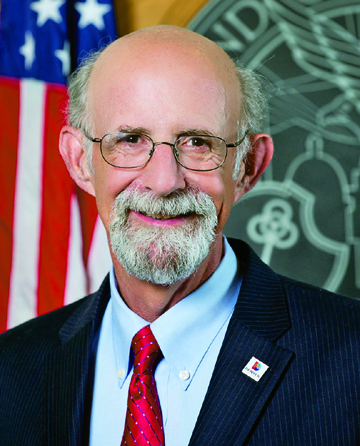
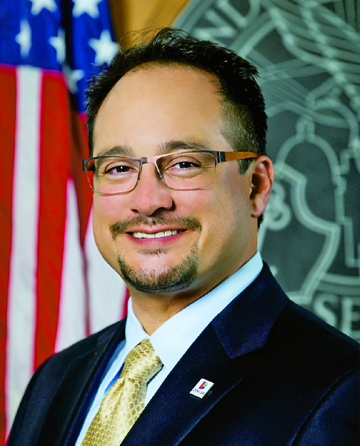
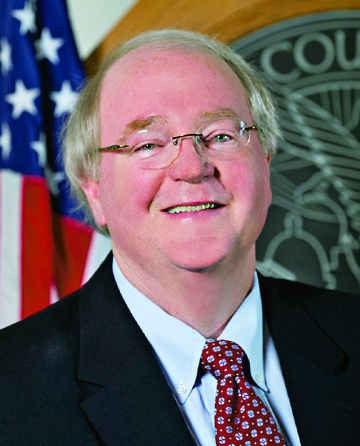
The big question for many was whether New, Kashmann and Espinoza would simply sell out once in office. The preliminary indications after seven months is that they have not and in addition, Flynn and Clark are showing some actual independence from the Mayor’s office on some important votes.
The citizens have even managed to win on a vote about a development project in front of the City Council in large part because it took 10 votes to rezone a property and the proponent Emmaus Lutheran Church managed to get only eight votes. New, Kashmann, Espinoza and Clark all voted “No.” Of course Emmaus Lutheran Church is not a deep pocketed developer like Peter Kudla with an army of lobbyists. Moreover by the old system of so called “courtesy voting” the project would have lost 12 to 0 because the project was in West Highland neighborhood represented by Espinoza. But since the pro neighborhood members were elected the concept has been abandoned regarding their neighborhoods which are some of the most valuable to developers in the city.
It was not an easy vote for the conscientious Espinoza since it involved a church that wanted to transform property zoned for single family homes into a medical facility and not the normal massive apartment high-rise, but he stuck to his principles. Espinoza and Clark even voted against the Mayor’s taxpayer rip off $8.6 million affordable housing bonds that cause the city to lose money while enriching the mayor’s rich backers.
It is at least encouraging that the Denver City Council does have some ethical and honorable members who have to date at any rate not disappointed their backers. So there is still hope in the Queen City of the Plains for the neighborhoods and their honest inhabitants.
— Editorial Board

by Mark Smiley | Jan 29, 2016 | Editorials
As the Clinton email brouhaha has demonstrated, the discovery process in civil litigation often uncovers government secrets and documents which otherwise escape public scrutiny from virtually any other method. In Denver, residents have often been mystified and confused how real estate projects actually get approved by Denver City Council even when overwhelmingly opposed by residents.
In theory the process is supposed to work as follows. A project is submitted to the Denver Community and Development Department whose staff gives a thorough review to be sure it complies with all applicable zoning and planning requirements. The staff is headed by a scrupulously honest professional and experienced executive director who gives a sharp eye to any requests for rezoning, variances or waivers. The community then gets its chance at a public hearing. A wholly citizen 11 person Planning Board is supposed to advise the mayor and the City Council on land use matters including planning and zoning. After the citizen Planning Board gives its recommendations concerning the project it proceeds to the City Council. The individual council members are supposed to be impartial judges acting in a “quasi-judicial” capacity. What they know about the development project is supposed to be what is summed up in the publicly available reports of the Planning Board and what they are told the night of the hearing including the comments of the developer and the members of the community.
Nothing of what is outlined above actually happens in Denver. The “cone of silence” between the City Council members and developer of a project and opponents to that project only occurs once a project has actually been submitted to the Denver Community and Development Department. Thus developers first fill the campaign coffers of the applicable council member. The developer then sits down with the applicable council member and gets his/her approval and any changes the council member may want, all before the public even knows there is a project. Once the project is filed is often the first time residents have heard of the project. But their council member then refuses to meet with them saying it would be legally improper for him or her to discuss a submitted projected as they are required by law to be wholly impartial and prohibited by law from meeting with citizens ex parte.
Thus projects are submitted by savvy developers to the Denver Community Planning and Development Department only after the fix is already in. The Executive Director of the Denver Planning Department is Brad Buchanan, an architect turned developer of whom it is often said is wholly void of any ethics or personal propriety. The 11 member citizen Planning Board has been stacked by Mayor Hancock with pro-developer advocates who almost never pay any heed to anything the residents of affected neighborhoods have to say at their public meetings.
The night comes for the City Council to consider a crooked project and the citizens actually get to, in theory, address the City Council themselves. Unbeknownst to many citizens the Denver City C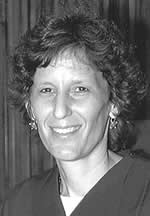 ouncil over 30 years ago secretly adopted the so-called “courtesy zoning rule” whereby they will all (or almost all for sake of appearances) vote exactly the same as the council member whose district a project is in. This allows the savvy developer to save a great deal of money only having to convince/bribe a single council member while members of the public erroneously think they must have to convince a majority of the City Council.
ouncil over 30 years ago secretly adopted the so-called “courtesy zoning rule” whereby they will all (or almost all for sake of appearances) vote exactly the same as the council member whose district a project is in. This allows the savvy developer to save a great deal of money only having to convince/bribe a single council member while members of the public erroneously think they must have to convince a majority of the City Council.
Of course it takes months for a project to go from submission to the Planning Department to the night of City Council consideration. Economics and other facts change over time. The developer needs to get the council member whose district the project is in to do him additional favors and considerations during this time period concerning his project. But the “cone of silence” rule that keeps the public at bay from the council member legally applies equally to the developer and his lobbyists.
What does the savvy developer and the bought and paid for council member do? The citizens who brought the lawsuit captioned Whitelaw v. The Denver City Council 2015cv032427 in Denver District Court concerning the City Council’s approval of the Mount Gilead project at Crestmoor found out through legal discovery. The answer is, of course, they cheat.
The very high density apartment project was wildly unpopular and required a rezoning in apparent direct contradiction with the city’s master plan called Blueprint Denver. Close coordination between the developer and the key Councilwoman Mary Beth Susman was apparently deemed necessary no matter how illegal. The plaintiffs in discovery demanded all correspondence including e-mails between the council-woman and the developer or its lobbyists post the filing of the project with the Planning Department. The response — not a thing, nada.
The lawyers for the residents, Gibson, Dunn & Crutcher, however, wondered what was good for former Secretary of State Hillary Clinton might be good enough for Councilwoman Susman, i.e. a private email account on which public business would be conducted free from public open records requests and scrutiny. With some incredible legal sleuthing the lawyers found out that Susman did in fact have a separate Gmail account on which city business was conducted. The Denver City Attorney’s Office already accused and shown to have been engaged in unethical conduct regarding the Denver Jail lawsuits decided not to risk their law licenses and this time produced the voluminous e-mail correspondence post project filing between the councilwoman and the developers’ lobbyists directly concerning the Mount Gilead project.
The lawsuit is in front of Denver District Court Judge Shelly I. Gilman. If she is half the jurist that Federal District Court Judge John Kane is, who oversaw the Denver Jail lawsuits, heads will roll. It is highly unlikely that Ms. Susman is the only city council member who has engaged in such apparent illegal conduct. It will be the job of Judge Gilman to follow the ancient Roman maxim of law “Fiat Justitia Ruat Caelum” — “Let Justice Be Done Though the Heavens Fall.”
— Editorial Board

by Mark Smiley | Dec 17, 2015 | Editorials
 The Denver Community Planning and Development Department under Brad Buchanan repeatedly has publicly declared that its overarching goal in planning and zoning for the City and County of Denver is “transparency, partnership and meaningful public involvement.”
The Denver Community Planning and Development Department under Brad Buchanan repeatedly has publicly declared that its overarching goal in planning and zoning for the City and County of Denver is “transparency, partnership and meaningful public involvement.”
Denver neighborhood leader and attorney Greg Kirwin, however, described what actually happens “as anyone with experience trying to shape their neighborhood knows, the land use process is primarily a collaboration between planning staff and consultants for the developers who cherry-pick language from Denver’s Plans and Zoning Code to build whatever kind of new development they want.” He went on to note, “The playing field is tilted in favor of developers throughout the planning process despite the illusion of ‘outreach’ to residents.”
Neighborhood activist Chris O’Connor was even more brutal declaring, “Mayor Hancock and his planners are trying to jam high-density, high-rise buildings into every Denver neighborhood without regard for thriving, existing communities and without adequate infrastructure . . . The entire process must be reformed.”
How does Mayor Hancock, Planning Director Brad Buchanan and the thoroughly compromised Denver Planning Board get away with such a perverted and corrupt system? First, of course, is the fact that the Denver City Council is also controlled by real estate developers and their friends. While three pro neighborhood candidates won this last election they are still only less than one-fourth of the entire 13 member council.
Another problem, of course, is that the paper of record for the city, The Denver Post, has generally buried the story of how real estate projects actually get approved and are helping to destroy the city’s neighborhoods in order to not anger the Hancock administration or its allies. Moreover the local state courts have refused to address concerns when presented with lawsuits by angry citizens. The local courts and judges similarly refused to address the brutality and corruption in the Denver Jail and City Attorney’s Office. Only when a courageous federal district court judge, John Kane, refused to look the other way were any reforms undertaken. Unfortunately, planning and zoning questions normally do not involve federal questions of law.
Finally, the zoning and planning process is highly complex and knowing how to reform the corrupt system is not easy. Fortunately, the Inter-Neighborhood Cooperation (INC) has set forth the principles for an honest system in a seven page “Platform for Denver Planning and Zoning,” which is available at the entity’s website. INC is the umbrella group for Denver’s myriad neighborhood groups called Registered Neighborhood Organizations or RNOs.
Many of the principles are just common sense and it is shocking that many of them are not included in the present broken system. The platform urges the mayor and other city officials to appoint representatives of RNOs to all city boards, commissions, advisory committees, etc. Presently only shills for developers need apply for positions on the Denver Planning Board or the Parks and Recreation Advisory Board. At one time an appointment to one of these boards was a badge of honor while today it is a mark of shame. In many sections of the city if an individual has been appointed to either board by Mayor Hancock, he or she is highly unlikely to be able to successfully run for an elective office in the future.
INC’s Platform has many important provisions but perhaps its greatest guiding principle is that “higher density development, zoning or projects should not be approved unless it can be shown that adverse traffic and parking impacts on the neighborhood will not result or will be mitigated. Traffic and parking impacts can cause serious harm to the quality of life and economic vitality in a neighborhood.” Under the present system parking ratios have been steadily decreased and the city literally declares that it will not ever consider traffic impacts. It is not clear if any other major city in the country refuses to consider traffic impacts when approving major real estate projects.
City planners have publicly stated that they want to make Denver less automobile friendly and force residents to ride bikes and take public transportation. Unfortunately, the public transportation system in Denver generally stinks and while a single millennial might be happy to take a bike around town, a mother with three small children might find such a dictate from a planning official ludicrous, particularly during the winter season.
Any future candidate for City Council should be asked to adopt and approve INC’s Platform for Denver Planning and Zoning. Any candidate who does not is probably not someone one would want on the City Council. More boldly, neighborhood groups might want to ask existing city councilmembers if they will adopt the INC’s Platform. If they refuse, some may begin to wonder whether they want those persons on the City Council at all. The City Charter provides a method by which citizens can undertake to remove from office a person who ceases to represent their interests and that method, recall, is being increasingly used throughout Colorado by angry citizens of all different political stripes. No city councilmember has ever been recalled in the history of Denver, but there is always a first time for everything.
— Editorial Board

by Mark Smiley | Nov 23, 2015 | Editorials
 If one was wondering how sleazy and dishonest the Hancock Administration has become, one need look no further than the appointment of former City Councilman Chris Nevitt to the city position of Manager of Transit-Oriented Development (TOD). Nevitt ran for the citywide post of Auditor and lost notwithstanding raising from real estate developers, and their lawyers and lobbyists, over 10 times the amount raised by his opponent Tim O’Brien. Even his supporter, former Auditor Dennis Gallagher, expressed his disgust with Nevitt the day after the election saying, “I haven’t seen such a bad campaign since Mark Udall.”
If one was wondering how sleazy and dishonest the Hancock Administration has become, one need look no further than the appointment of former City Councilman Chris Nevitt to the city position of Manager of Transit-Oriented Development (TOD). Nevitt ran for the citywide post of Auditor and lost notwithstanding raising from real estate developers, and their lawyers and lobbyists, over 10 times the amount raised by his opponent Tim O’Brien. Even his supporter, former Auditor Dennis Gallagher, expressed his disgust with Nevitt the day after the election saying, “I haven’t seen such a bad campaign since Mark Udall.”
Nevitt managed to lose by being seen by the voters as little more than a cheap shill for the very worst real estate developers doing business in Denver. He confirmed the people’s low opinion of him when in one of his last meetings before leaving office he gave a speech declaring every part of the city must sacrifice in order to make room for extremely high density rather than risk the horrors of possible suburban sprawl. The speech was too much even for The Denver Post who blasted him in its editorial pages making him a persona non grata throughout the City and County of Denver.
But Nevitt had done the bidding of Mayor Hancock and his real estate buddies ever since Hancock had taken office. Hancock even indicated, prior to Nevitt’s election loss, that Nevitt might make a good successor to him as mayor. After his election loss, Nevitt at age 52 faced difficult job prospects. He was totally devoid of any skills which would make him employable in the private sector and thus it was believed he was only suited for working for the government.
It was extraordinary however, that city department after city department refused to even consider him. An exasperated Hancock was forced to create a whole new job position within the morally bankrupt Department of Community Planning and Development run by the highly controversial Brad Buchanan. Buchanan is considered the only individual in Denver government that the citizens of Denver consider being as or more unethical than Nevitt.
Buchanan’s Department publicly announced, to the guffaws of city insiders, that Nevitt won the job of Manager of TOD “after a competitive hiring process.” Garnering only a $120,000 position in the Hancock administration demonstrated how far Nevitt had fallen. Buchanan knew that Nevitt coming aboard his Department would not be welcomed by his highly demoralized staff who do not like being viewed by the public as simply tools for real estate developers. He put out an internal memo attempting to justify Nevitt’s hiring and the position he would occupy as Manager of TOD.
The job apparently is to be in charge of coordinating city efforts to encourage development along transit stops. Of course as massive development of high-rise apartments in Cherry Creek North showed that developers couldn’t care less about building projects along light rail stops and they control the city government and not the other way around.
Buchanan declared in the memo that Nevitt was “uniquely suited for this position based on experience working with private sector constituencies [i.e. real estate developers] involved with land development” not quite understanding that Nevitt’s job as a city councilman was actually not to work with developers but rather to represent his actual constituents and sit in a quasi-judicial capacity to vote up or down projects that came before the City Council. Buchanan was in essence implying that Nevitt might have been engaged in what some might consider illegal activity with developers.
The fact that this so-called “job” had heretofore never existed is indicative of how necessary it actually is. Luckily Nevitt is well known for his incredible laziness as his losing Auditor race demonstrated. Thus in some ways he is a perfect fit as a no-work politician being matched up with a no-work government job. He will lunch and cocktail with real estate developers he knows and others while they get approved building where they want to build in the city which is normally not next to light rail stations.
But is this the end of Chris Nevitt as a public figure in Denver buried in the belly of the government beast? It turns out that being too incompetent to qualify for an actual mayoral appointment has its real advantages. Unlike Rocky Piro as Planning Director or Lauri Dannemiller as Parks Director Nevitt can’t simply be fired by this mayor or any future mayor. He has full civil service protection. He can spend his next decade and a half or so doing little or nothing while pulling in six figures and a hefty pension. Upon a well-deserved retirement from arduous public service Nevitt can wander down to Florida or Arizona and vegetate until his ultimate demise.
Sure it is not much of a life for a person with talent and ambition but Nevitt never had the talent part anyway. The media, including this paper, will of course miss him as a figure to kick around and make fun of. Surely he will be tempted at some point to try to revive his mayoral ambitions, but he is better suited living the sleepy government apparatchik life. But should he someday unwisely decide to leave his sinecure for a more public role we in the media will certainly be there to greet him with open arms.
— Editorial Board

by Mark Smiley | Nov 2, 2015 | Editorials
Robert Speth v. Happy Haynes
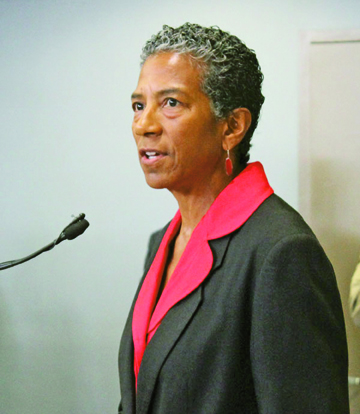 On November 3 there will be an off year election here in Denver for which there is little excitement except over the endless attempts to get Denver taxpayers to pay for everything from redoing the stock show grounds to paying for the college education of the political elite’s kids and those belonging to politically favored groups.
On November 3 there will be an off year election here in Denver for which there is little excitement except over the endless attempts to get Denver taxpayers to pay for everything from redoing the stock show grounds to paying for the college education of the political elite’s kids and those belonging to politically favored groups.
But there is one hotly contested elective office fight and that concerns three positions on the seven person Denver Public School Board. The most interesting is the at large contest between current DPS Board President Allegra “Happy” Haynes and Robert Speth, a senior strategic account manager for Sprint.
The race boils down to corporate oriented reformers versus teacher union supporters as it does in almost all DPS elections. Corporate oriented reformers presently control six of the seven positions with the sole teacher union supporter Arturo Jimenez not running for re-election.
Challenger Robert Speth appears to be a highly intelligent individual with a wife and two children in the Denver Public system at Valdez Elementary School in northwest Denver. His campaign slogan is “A Parent. Not a Politician.”
For those not in the know, his opponent, 62-year-old Happy Haynes, is a lifelong politician who has never had children, much less one in the Denver Public Schools. Some of her opponents have long claimed that she does not even really live in Denver. She is, in fact, is perhaps one of the strangest and least qualified presidents of a school board in the country.
Haynes was recently handed the high paying city job of executive director of the Denver Parks Department by longtime political ally Mayor Michael Hancock without interviewing a single other candidate and halting the national search to help locate qualified individuals for the position. Her appointment was widely condemned across almost all political spectrums with park advocates pointing out she had absolutely no background or qualifications for the post. But being unqualified for a job under the Hancock Administration is not deemed an impediment as long as you are politically connected to the mayor.
She has also refused to resign as school board president to take the Parks Department position saying that during the day she would be head of Parks and a DPS president at night. Good government types have pointed that she has endless conflicts of interest between her two jobs. As president of the DPS she previously spearheaded the partial destruction of Hentzell Park to benefit the building of a new school. Okay for DPS, but a disaster for the park. The utterly spineless Denver Ethics Board, however, blessed her having the two jobs at once. What is all the more amazing about Haynes holding two jobs at once is that Haynes is not known for being a particularly hard worker. In all her time on Denver City Council she did not have a single accomplishment. She is best remembered by her fellow councilmembers as a person who failed to return almost every telephone call from her constituents. Incumbency in Denver is such a powerful force that once you are elected it is almost impossible to be voted out even if you, like Ms. Haynes, stiff-arm the people who put you in office.
Perhaps because she never had any children herself she has shown almost no actual interest in Denver’s school kids. She has been little more than a rubber stamp for literally every proposal of controversial DPS Superintendent Tom Boasberg and the corporate backers of Mayor Hancock.
Ms. Haynes’ primary attribute for her entire adult life appears to be having a politically connected mother, Jo Anne Haynes, and fortuitously being nicknamed by her mother at an early age “Happy.” Who wouldn’t want to vote for someone named Happy.
Ms. Haynes appears to recognize that her primary qualification to any job is her nickname as all of her yard signs simply say “Happy!” not dissimilar to Republican presidential candidate John Ellis Bush’s campaign signs simply saying “Jeb!”
Our primary concern with Robert Speth is that we do not agree with his strategy for improving Denver schools, including severely limiting charter schools and choice in the Denver school system. He wants teachers limited to those who are “certified” and wants teachers promoted based on seniority. By straitjacketing the choice that a parent has in Denver to a “neighborhood school” you make the Denver Public Schools even less attractive than they are now and cause more parents to abandon the public school system.
However, we are also cognizant that the majority of the school board will be pro-reform no matter the results of this election. Having no dissenting voices on the DPS School Board is not a good idea. Superintendent Boasberg has grown ever more arrogant and self important over the years and there needs to be at least one voice that will act as query to the actions of the school administrators.
We may not agree with some of the positions of Robert Speth but he is at least a very concerned and intelligent DPS parent whose decisions on the Board will directly affect his own children. Happy Haynes is a lifetime politician who has repeatedly shown her only interest is what is good for Happy Haynes. Moreover voting for Speth is also at least one clear symbolic vote against the corruption that has overtaken Denver City Hall.
— Editorial Board

by Mark Smiley | Sep 25, 2015 | Editorials
 Michael Hancock’s appointment of CRL Associates lobbyist and former politician Allegra “Happy” Haynes as the head of Denver Parks and Recreation was the final straw for many Denver citizens regarding whether the municipal government of Denver can be reformed as it is presently constituted to respond to the wishes of its citizens. With the ethically challenged Brad Buchanan in charge of Denver Community Planning and Development and the citizen boards of both Planning and Parks stuffed with lobbyists and political shills, there is almost no effective citizen input anywhere in the process. At one time local neighborhood associations thought they had the ear of their duly elected city councilperson, but in many cases that is no longer true.
Michael Hancock’s appointment of CRL Associates lobbyist and former politician Allegra “Happy” Haynes as the head of Denver Parks and Recreation was the final straw for many Denver citizens regarding whether the municipal government of Denver can be reformed as it is presently constituted to respond to the wishes of its citizens. With the ethically challenged Brad Buchanan in charge of Denver Community Planning and Development and the citizen boards of both Planning and Parks stuffed with lobbyists and political shills, there is almost no effective citizen input anywhere in the process. At one time local neighborhood associations thought they had the ear of their duly elected city councilperson, but in many cases that is no longer true.
Citizens have fought back bringing lawsuits in the case of numerous ill-conceived projects, but lower Denver courts to date appear to believe their job is to prevent any of the cases from ever being heard by a jury of Denver citizens. Many residents increasingly believe the system most definitely does not work and the deck is stacked against the average citizen in favor of real estate developers and other politically connected groups.
Historian Phil Goodstein has queried why we even pretend that people like Happy Haynes and Brad Buchanan are anything but bought and paid for hacks of CRL Associates and Brownstein Hyatt. He has suggested, somewhat facetiously, that we monetize the process similar to Hancock’s efforts to monetize Denver parks. Under the Goodstein plan the positions of executive directors of parks and planning would be put out to bid to the likes of CRL Associates and Brownstein Hyatt “who would pay to name their puppets to office.” Would his suggestion actually be any worse than the present system?
At the spring municipal election three candidates — Wayne New, Rafael Espinoza and Paul Kashmann — upset candidates strongly supported and funded by Mayor Michael Hancock and his coterie of lobbyists and real estate developers. But as Rafael Espinoza has articulated the Denver City Charter invests enormous power in the Denver mayor. Maybe it’s finally time to take some of that power away and in turn empower average citizens of the City and County of Denver.
Concerned citizen Dave Felice has suggested that we alter the City Charter with a citizen initiative to provide for a separately elected independent parks commission that would appoint its own executive director. While we are at it, a separately elected Community Planning and Development commission would also be appropriate.
Of course Denver is not the only municipality in Colorado that has seen its planning process hijacked by real estate developers. In Aspen and Steamboat Springs the citizens got so tired of an endlessly corrupted process that they changed their city charters to require a public vote to approve certain real estate projects. You have the feeling that some truly destructive neighborhood projects now under construction in Denver would have never seen the light of day under such a system.
The City Council could hardly object to such charter changes. In 2010 they merrily gave away to the mayor any and all control of the parks in Denver. The suggested charter changes would simply in turn take it away from the mayor and give it back to the people not only for parks but also development and planning. As a practical matter what in the world do the citizens of Denver have to lose from such changes to the City Charter?
— Editorial Board










